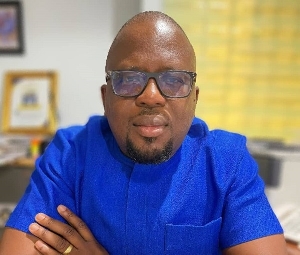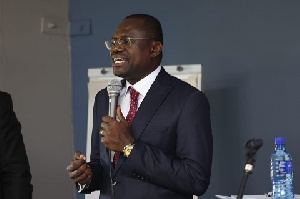Throughout my years of experience, I have come to recognize the fundamental truth that effective navigation within any domain requires a deep understanding of its intricacies. This sentiment finds resonance in the age-old wisdom of
the good book, which states "My people perish for lack of knowledge.” It has become apparent that a significant portion of Ghanaians lack comprehensive insight into the operations of financial markets.
Hence, it is imperative that we endeavour to shed some light on the organizational structure of these markets. The fact is that the financial market is a complex system with various participants, instruments, and structures.
The organizational structure of the financial market can be broadly categorized into different segments, each serving specific functions. Below is a general overview of the structure of the financial markets:
Primary Market:
1. Issuer: The entity or company that issues new securities (stocks or bonds) to raise capital (money) for any reason to the benefit of the company.
2. Underwriter: Financial institutions or investment banks that assist in the issuance process by purchasing securities from the issuer and reselling them to investors.
3. Investors: These are Individuals or institutions buying newly issued securities.
Secondary Market:
1. Exchanges: Organized markets where buyers and sellers come together to trade existing financial instruments. Examples include the Ghana Stock Exchange (GSE), Nairobi Stock Exchange (NSE) London Stock Exchange (LSE), New York Stock Exchange (NYSE), NASDAQ and so on.
2. Brokerage Firms: Intermediaries that facilitate the buying and selling of financial instruments on behalf of investors. Per their operating license, they are mandated to facilitate trading activities only – no advisory or management of the assets.
3. Investors: Individuals, institutional investors, and traders who buy and sell existing publicly listed securities.
Financial Intermediaries:
1. Banks: Provide various financial services, including loans, deposits, and investment services.
2. Insurance Companies: Offer risk management and insurance products.
3. Investment Funds: Pool funds from various investors to invest in a diversified portfolio of financial instruments like the various types of mutual funds in Ghana and other markets. Some of these funds are, EcoCapital Prime Fund, EcoCapital Nordea Income Growth Fund, EcoCapital Weston Oil and Gas Fund, and many others... These funds are licensed by the Securities and Exchange Commission (SEC).
4. Pension Funds: Manage and invest funds on behalf of pension plan or scheme participants. In Ghana, we have first-tier, second-tier and third-tier pension schemes regulated by the National Pension Regulatory Authority (NPRA).
Regulatory Bodies:
1. Government Agencies: Regulate and supervise financial markets to ensure fair and transparent operations. Examples include the Securities and Exchange Commission (SEC) in Ghana, Kenya, the UK, the United States and other countries.
2. Central Banks: Oversee monetary policy, regulate banks, and maintain financial stability Eg. Bank of Ghana, Federal Reserve Bank in the USA.
Clearing and Settlement Entities:
1. Clearinghouses: Act as intermediaries between buyers and sellers to ensure the smooth settlement of trades.
2. Depositories: Hold and safeguard financial instruments in electronic form – in Ghana, we have the Central Securities Depository (CSD).
Technology Platforms:
1. Electronic Trading Platforms: they facilitate the buying and selling of financial instruments electronically for investors to perform investing activities at their convenience.
2. Blockchain and Cryptocurrency Exchanges: Are other types of trading platforms meant for trading digital assets in a decentralized manner.
Market Participants:
1. Individual Investors: These are retail investors who trade securities for personal investment.
2. Institutional Investors: They are the large organizations, such as mutual funds, pension funds, and insurance companies, managing significant amounts of capital.
In general, the financial market's organizational structure is dynamic and may vary across countries and regions based on regulatory frameworks, market participants, and technological advancements. Indeed, the financial markets play a crucial role in facilitating the flow of capital, managing risks, and contributing to overall economic development in the country.
For a deeper understanding of this subject and further assistance kindly contact EcoCapital Investment Management Ltd., on +233(0)501 553 502 or send us a mail via invest@ecocapinvestment.com.
EcoCapital Investment Management Limited (EIML) is a company incorporated in Ghana and licensed by the Securities and Exchange Commission (SEC) as an Investment Management firm, and by the National Pensions Regulatory Authority (NPRA) as Fund Manager of both second and third tiers of the national pension scheme.
The corporate mandate of the firm is to deliver premium financial solutions and investment management services to both retail and institutional investors in Ghana. Services on offer at EcoCapital include: Wealth Creation and Management, Investment Portfolio Management, Pension Fund Management, Mutual Funds, Retirement Planning, Investment Research and Advisory.
The firm has three mutual fund products under management, namely; Prime Fund, Nordea Income Growth Fund and the Weston Oil and Gas fund
Press Releases of Monday, 19 February 2024
Source: Ecocapital Investments Limited













